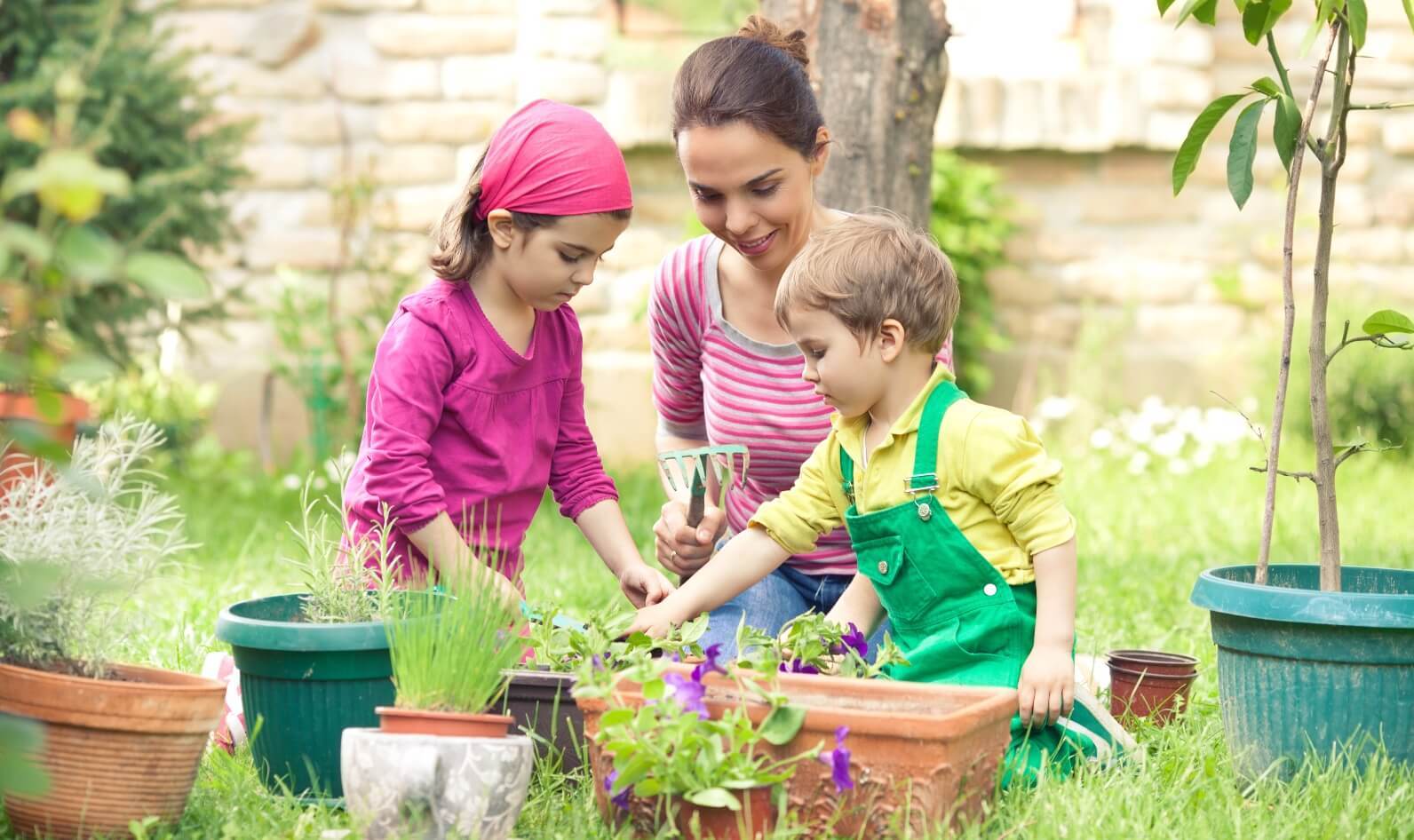Seasonal Gardening Tips: What to Plant and When for Best Outcomes
Seasonal Gardening Tips: What to Plant and When for Best Outcomes
Blog Article
Opening the Benefits of Gardening: An In-depth Check Out the Different Types and Their Effect On Wellness
Exploring the complex benefits of horticulture exposes a spectrum of techniques that dramatically improve individual well-being. As we examine these varied gardening techniques, it comes to be noticeable that their effect can resonate on personal, social, and ecological levels, motivating a closer look at just how these connections create a cohesive story of holistic wellness.
Types of Horticulture

Flower gardening, an additional prominent classification, emphasizes the visual charm of cultivated blossoms. This kind can improve landscapes and advertise biodiversity by bring in helpful pollinators. Herb gardening includes expanding fragrant and culinary plants, adding both to cooking and all-natural treatments.
Container gardening offers adaptability, allowing individuals with restricted space to involve in gardening by utilizing pots and planters. This technique is particularly prominent in urban setups. Raised bed horticulture, on the various other hand, includes developing elevated stories that improve dirt drainage and availability, making it simpler for garden enthusiasts to manage their plants.
Last but not least, community gardening cultivates partnership amongst individuals in shared rooms, promoting social interaction and cumulative responsibility. Each kind of horticulture serves unique objectives and deals with various choices, making gardening a flexible activity that can be tailored to specific requirements and settings.
Mental Health Advantages
Engaging in numerous kinds of gardening not only yields concrete benefits such as fresh fruit and vegetables and stunning blossoms yet also supplies significant mental wellness advantages. Study indicates that horticulture can be an effective device for decreasing anxiety, anxiousness, and clinical depression. The act of often tending to plants and cultivating a garden cultivates a sense of purpose and accomplishment, which can enhance overall emotional wellness.
Additionally, gardening encourages mindfulness, as it requires individuals to focus on today moment, whether it be growing seeds or supporting development. This mindfulness technique can bring about reduced rumination and improved mood security. The direct exposure to native environments throughout gardening has actually likewise been linked to improved cognitive functioning and decreased feelings of fatigue.
Social interaction plays an essential role in psychological wellness, and area horticulture efforts give possibilities for people to link with others, fostering a sense of belonging. The common experience of horticulture can grow relationships and support networks, further bolstering psychological durability.
Physical Health Conveniences
Numerous people may not realize that horticulture also supplies substantial physical health and wellness advantages. Taking part in gardening tasks requires a series of physical movements, including flexing, lifting, digging, and planting, which collectively add to improved stamina, adaptability, and endurance. These activities can improve cardio health by promoting a raised heart price, thereby reducing the danger of cardiovascular disease.
Furthermore, horticulture can act as a moderate-intensity workout, have a peek at these guys helping people attain recommended physical activity levels. Research studies show that regular involvement in horticulture can melt significant calories-- about 200-400 calories per hour, depending on the intensity of the jobs executed. Such calorie expense is helpful for weight monitoring and total metabolic wellness.
Furthermore, direct exposure to sunshine throughout horticulture can promote the synthesis of vitamin D, which plays a vital function in keeping bone health and supporting immune function. The act of gardening often entails functioning with soil, which has been connected to possible psychological and physical health and wellness benefits due to the presence of beneficial microbes.
Social Links Via Horticulture
The common elements of gardening foster purposeful social links among individuals. Community yards, particularly, act as dynamic centers where individuals from varied backgrounds come together, growing not just plants but also partnerships. These common spaces urge partnership, allowing people to exchange expertise, abilities, and resources, thus enhancing their gardening experience and fostering a feeling of belonging.
Engagement in gardening tasks often results in the development of relationships and assistance networks. Individuals often unite for common goals, such as growing seasons, harvest events, or educational workshops, which strengthen social ties and produce a feeling of community. Such interactions can minimize sensations of isolation and boost mental well-being, as people find friendship and camaraderie in shared undertakings.

Environmental Influence of Gardening
Gardening dramatically adds to environmental sustainability in numerous methods. One of one of the most noteworthy advantages is the enhancement of biodiversity. Home gardens supply important environments for different species, consisting of pollinators such as bees and butterflies, which are crucial for environment Bonuses health. By growing diverse plant types, gardeners can produce a balanced atmosphere that supports both plants and animals.
:max_bytes(150000):strip_icc()/garden-glossary-potting-getty-0623-ecf762deed2a43bca2a90183cb03da31.jpg)
Additionally, gardens play an important role in water preservation. Tactical landscapes, including indigenous plants and xeriscaping, lower water usage and avoid runoff, therefore securing regional rivers from air pollution.
Final Thought

The diverse types of horticulture-- consisting of veggie, flower, natural herb, container, and raised bed-- contribute to mental and physical health and wellness, foster social links, and advertise environmental sustainability. By engaging in gardening methods, individuals can experience enhanced high quality of life while additionally sustaining area bonds and eco-friendly health and wellness.
Report this page